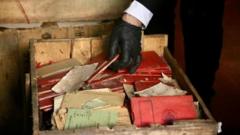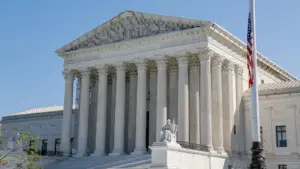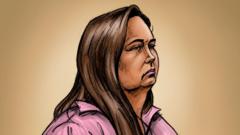The debate over Quebec's 2019 law, which some critics argue unfairly targets minority religious groups, will soon be heard by Canada's highest court.
Quebec's Religious Symbol Ban Faces Supreme Court Scrutiny

Quebec's Religious Symbol Ban Faces Supreme Court Scrutiny
Canada's Supreme Court to review Quebec's controversial law banning religious symbols for public-sector employees.
The Supreme Court of Canada is set to review a contentious 2019 Quebec law that prohibits public-sector workers from displaying religious symbols while on duty. Known as Bill 21, this legislation is under scrutiny as it faces opposition from various civil rights groups while inciting strong support from segments of the Quebec population.
Under this law, civil servants such as teachers, police officers, and prosecutors are banned from wearing items associated with their faith, such as turbans, hijabs, and crosses. Advocates for the law argue that it upholds the province's commitment to secularism, emphasizing the importance of a neutral public service devoid of religious influences. In a statement on X, Premier François Legault reiterated the government's intention to uphold its secular values, stating, “We will fight to the end to defend our values and who we are.”
However, the legislation's critics claim that it disproportionately affects Muslim, Jewish, and Sikh communities, leading to a disproportionate impact on these groups’ ability to participate fully in public life. Critics argue that the law contravenes the fundamental rights of freedom of expression and religion as protected under the Canadian Constitution. The ongoing debate taps into broader conversations about the application of the Charter of Rights and Freedoms and the implications of the “notwithstanding clause,” which allows governments to bypass certain constitutional rights under specific circumstances.
As Quebec has navigated its distinct historical path towards secularism, including a significant cultural shift after the 1960s “Quiet Revolution,” the Supreme Court's decision will serve as a critical barometer for future secular policies in Canada. The high-stakes ruling will not only affect public workers in Quebec but may also set a significant precedent for how other provinces balance secularism with religious freedoms.



















